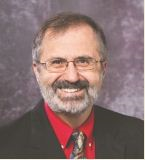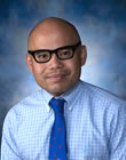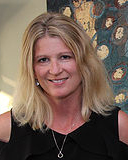UPMC Hamot 2019 Neuroscience Conference
Early diagnosis and treatment of stroke and other neurologic disorders can have a profound impact on patient outcomes and mortality. The diagnosis, management, treatment, and rehabilitation of diseases of the brain and spine is rapidly changing. It is vital that primary care practitioners, nurses, therapists, and other advanced practice providers maintain an awareness of the differential diagnoses, as well as new and emerging treatment options for these.
This annual activity will focus on the neurosciences, including stroke and other disorders of the brain, as well as foster networking and collaboration among clinical disciplines within the region. Both current and future treatment options will be addressed, along with management issues and prevention of possible complications. Case presentations will complement didactic presentations.
Target Audience
Primary care physicians, internists, neurologists, neurosurgeons, nurses, nurse practitioners, physician assistants; physical, occupational, and speech therapists; and other advanced practice providers will benefit from attendance at this activity.
Learning Objectives
At the conclusion of this activity, the participants should be able to:
- Describe paroxysmal nocturnal hemoglobinuria
- Discuss stroke care through perspective of patient and family
- Identify paroxysmal hemoglobinuria return to community challenges
- Recognize common stroke syndromes
- Describe the anatomy that applies to stroke syndrome
- Summarize the various causes of stroke syndromes
- Discuss benefits of neuropsychiatric referral for patients with neurological deficits
- Summarize key communication points for patients and family during neuropsychiatric referral discussion
- Describe the primary care based neuropsychiatric assessment process for subtle neurological deficits
- Identify the next steps after neuropsychiatric assessment
- Discuss ways to convince the reluctant patient to proceed with neuropsychiatric management and testing
- Review the neuropsychiatric referral process
- Discuss updated guidelines and advances in atrial fibrillation
- Review new treatment options for atrial fibrillation
- Describe the benefits of implantable treatment options for atrial fibrillation
- Describe potential cognitive deficits post cardiac arrest
- Discuss updates and neurologic treatment protocols for cardiac arrest patients
- Review the effects of hypoxia and cognitive complications post cardiac arrest
- Describe risk management for anticoagulant and antiplatelet medications
- Identify procedures at greater risk for complications due to anticoagulant or antiplatelet medications
- Identify procedures at lower risk for complications due to anticoagulant or antiplatelet medications
- Describe the etiology and pathophysiology of disorders of consciousness
- Discuss training and education for possible clinical outcomes
- Identify criteria for inclusion in Disorders of Consciousness program
- Describe the multidisciplinary approach to management of disorders of consciousness during the inpatient rehabilitation phase
- Discuss therapeutic modalities and treatments of patients for disorders of consciousness
- Recognize the behavioral symptoms associated with patients of disorders of consciousness
- Discuss the importance of diet and nutrition for secondary stroke intervention
- Describe therapeutic post-stroke diet options for secondary intervention
- Relate importance of nutrition to patients and families to improve compliance with dietary therapies
- Recognize the benefits of telemedicine for neurological disorders presenting to community hospitals in rural settings
- Identify challenges of telemedicine for neurological assessment
- Describe outcomes of telemedicine assessment for neurological disorder
| 7:00 – 7:30 a.m. | Registration/Continental Breakfast |
| 7:30 – 7:35 a.m. | Opening Remarks |
| James A. DeMatteis, MD, FAAN, FACP | |
| 7:35 – 8:05 a.m. | Stroke Acute Care Patient Story: |
| Paroxysmal Nocturnal Hemoglobinuria in a 28-Year-Old* | |
| Ann Sokoloff, BSN, CNRN | |
| 8:05 – 8:50 a.m. | Stroke Syndromes* |
| Cynthia Kenmuir, MD, PhD | |
| 8:50 – 9:20 a.m. | Convincing Reluctant Patients to Seek Neuropsychiatric Treatment |
| Maggie Benson, MD | |
| 9:20 - 9:50 a.m. | Reluctant Patient Story – Identifying Subtle Deficits in Patients |
| Tammy Kordes, PhD | |
| 9:50 – 10:05 a.m. | Refreshment Break |
| 10:05 – 10:35 a.m. | Afib and the Brain |
| Madhurmeet Singh, DO | |
| 10:35 – 11:20 a.m. | Post Cardiac Arrest Neuro Care |
| Logan Pyle, DO | |
| 11:20 – 11:50 a.m. | Management of Anticoagulants & Antiplatelets |
| James A. DeMatteis, MD, FAAN, FACP | |
| 11:50 -12:35 p.m. | Afib and the Brain |
| Madhurmeet Singh, DO | |
| 12:35 – 1:35 p.m. | Coma to Community – Disorders of Consciousness: |
| Background and Medical Intervention* | |
| Gary Galang, MD | |
| 1:35 – 2:20 p.m. | Coma to Community – Disorders of Consciousness: |
| Therapeutic Intervention and Rehabilitation* | |
| Terry Breisinger, PT, NCS | |
| Allyson Yukevich, MOT, OTR/L, CBIS, CPAMs | |
| 2:20 – 2:35 p.m. | Refreshment Break |
| 2:35 – 3:05 p.m. | Clinical Nutrition for Stroke* |
| Colleen Iavarone, RDN, LDN | |
| 3:05 – 3:50 p.m. | Case Study of a Community Hospital Telemedicine Program* |
| Christine Holmstedt, DO | |
| 3:50 p.m. | Adjournment |
| *Approved for Stroke Credit | |
The Conference Center is attached to the Courtyard by Marriott and Hilton Garden Inn
Attire
Attire for the conference is business casual. Since meeting room temperatures can vary, it is recommended that you bring a light jacket or sweater with you to the conference.
Special Needs
Participation by all individuals is encouraged. Advance notification of any special needs (i.e. gluten free or vegan meal, private room for nursing mothers, handicap accessibility) will help us provide better service. Please notify us of your needs at least two weeks in advance of the program by calling UPMC Hamot’s CME office at 800-352-2553 or 814-877-5691.
Travel
Click here for directions.
Maggie Benson, MD
Internal Medicine
UPMC Hamot
Terry Breisinger, PT, NCS
Supervisor, Rehab Services
UPMC Mercy

James A. DeMatteis, MD
Neurologist
UPMC Hamot
Northshore Neurosciences

Gary Galang, MD
Assistant Professor
Department of Physical Medicine
and Rehabilitation
UPMC Mercy

Christine Holmstedt, DO
Medical Director, Clinical Stroke Services
Co-Director, Comprehensive Stroke & Cerebrovascular Center
MUSC Health

Colleen Iavarone, RDN, LDN
Manager, Clinical Nutrition
UPMC Hamot

Cynthia Kenmuir, MD
Director of Stroke Program
Director of Neurointerventional Program
UPMC Altoona

Tammy Kordes, PhD
Neuropsychologist
Northshore Psychological Associates, LLC

Logan Pyle, DO
Neurocritical Care Fellow
University of Cincinnati Medical Center

Madhurmeet Singh, DO
Division of Cardiovascular Medicine
UPMC Hamot

Ann Sokoloff, BSN, CNRN
Clinical Director, Ortho/Neuro Services
UPMC Hamot
Allyson Yukevich, MOT, OTR/L, CBIS, cPAMS
Occupational Therapy Senior
Brain Injury Rehabilitation Unit
UPMC Mercy
Special thanks to the members of our planning committee:
James Dematteis, MD; Haylee Esposito; Tammy Kordes; Debbie Morton, BSN, RN-BC; Samantha Panighetti, MOT, OTR/L, NTMTC; Margaret Pett; Ann Sokoloff, BSN, CNRN; and Stacy Wing, PT
ACCREDITATION
In support of improving patient care, the University of Pittsburgh is jointly accredited by the Accreditation Council for Continuing Medical Education (ACCME), the Accreditation Council for Pharmacy Education (ACPE), and the American Nurses Credentialing Center (ANCC), to provide continuing education for the healthcare team.
Physician (CME)
The University of Pittsburgh designates this live activity for a maximum of 7.0 AMA PRA Category 1 Credits™. Physicians should claim only the credit commensurate with the extent of their participation in the activity.
Nursing (CNE)
A maximum of 7.0 nursing contact hours will be awarded. Participants will be able to claim credit commensurate with the extent of their participation in the program.
Physician Assistant (AAPA)
The University of Pittsburgh has been authorized by the American Academy of PAs (AAPA) to award AAPA Category 1 CME credit for activities planned in accordance with AAPA CME Criteria. This activity is designated for 7.0 AAPA Category 1 CME credits. PAs should only claim credit commensurate with the extent of their participation.
Stroke Hours
Sessions that meet requirements for stroke education hours are indicated on the agenda. This activity has been designed to meet the requirements for 4.25 stroke education hours.
PT Credit
Application has been submitted to the Pennsylvania State Board of Physical Therapy for course approval for 7.0 credit hours.
OT Credit
Application has been submitted to the Pennsylvania State Board of Occupational Therapy for course approval for 7.0 credit hours.
ASHA Credit
 This course has been submitted to ASHA for approval of CEs. PA Training and Technical Assistance Network is approved by the Continuing Education Board of the American Speech-Language-Hearing Association (ASHA) to provide continuing education activities in speech-language pathology and audiology. See course information for number of ASHA CEUs, instructional level and content area. ASHA CE Provider approval does not imply endorsement of course content, specific products or clinical procedures.
This course has been submitted to ASHA for approval of CEs. PA Training and Technical Assistance Network is approved by the Continuing Education Board of the American Speech-Language-Hearing Association (ASHA) to provide continuing education activities in speech-language pathology and audiology. See course information for number of ASHA CEUs, instructional level and content area. ASHA CE Provider approval does not imply endorsement of course content, specific products or clinical procedures.
Available Credit
- 7.00 AAPA Category I CME
- 7.00 AMA PRA Category 1 Credit™The University of Pittsburgh School of Medicine is accredited by the Accreditation Council for Continuing Medical Education to provide continuing medical education for physicians.
- 7.00 ANCCUPMC Provider Unit is accredited as a provider of continuing nursing education by the American Nurses Credentialing Center’s Commission on Accreditation
- 7.00 Attendance
After the conference, complete the Evaluation, Claim Credit and Receive your Certificate for this course.
At that time you will need to create an account in the system.
Step 1: Click Register (upper right corner).
Note: The email address used to register for this conference should be the same email you use when creating your account.
Step 2: Complete the questions and click on Continue.
You will get a message the registration was successful.
Step 3: Go to My Account tab and choose My Activities.
This conference will be listed as a "pending activity" based on your pre-registration.
Step 4: Click on the activity name to open the course information
Step 5: Click Register/Complete Course tab, and the purple Register/Complete Course button.
Step 6: Complete the online evaluation, claim your credit, and receive your certificate for download.

 Facebook
Facebook X
X LinkedIn
LinkedIn Forward
Forward